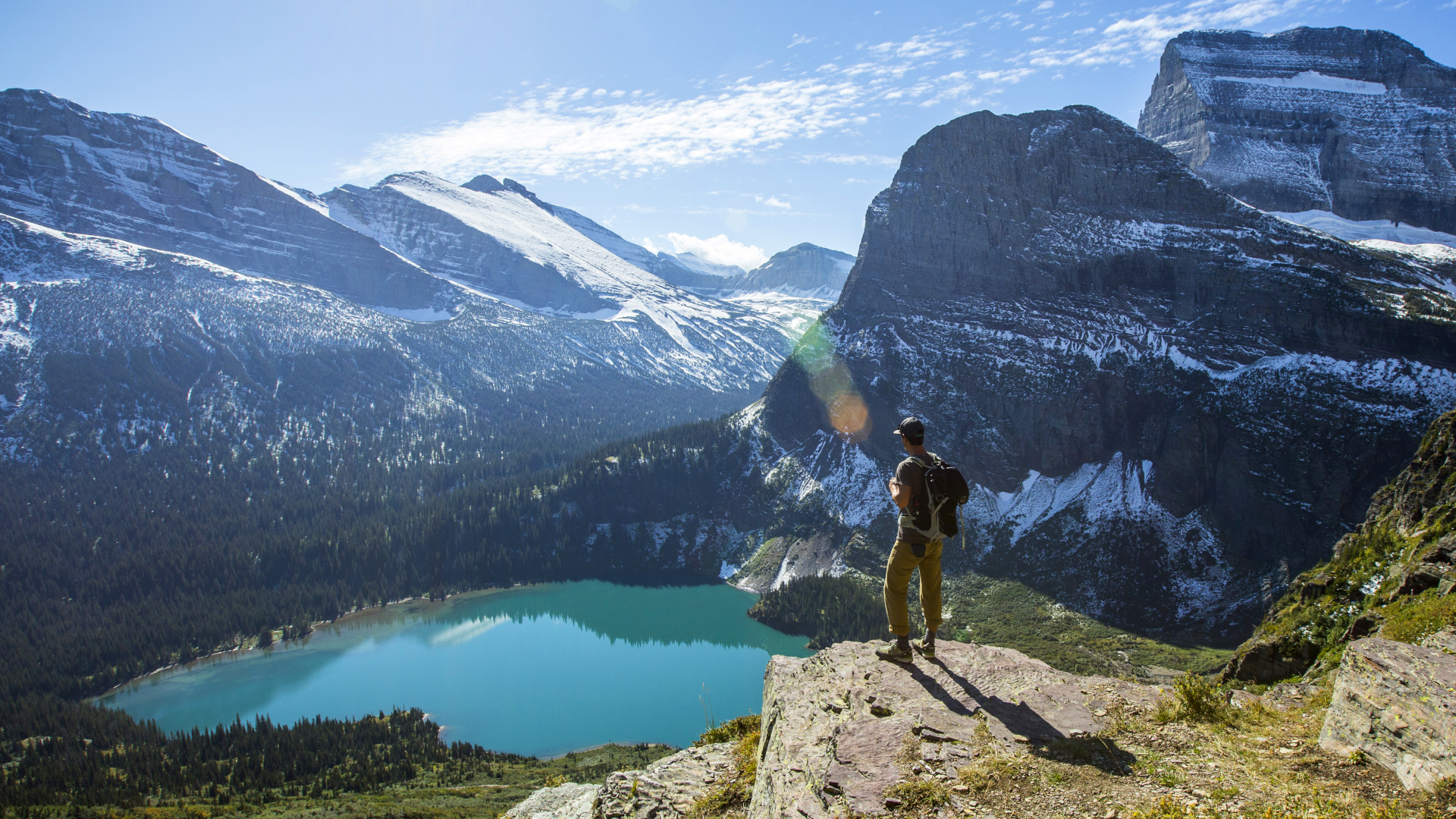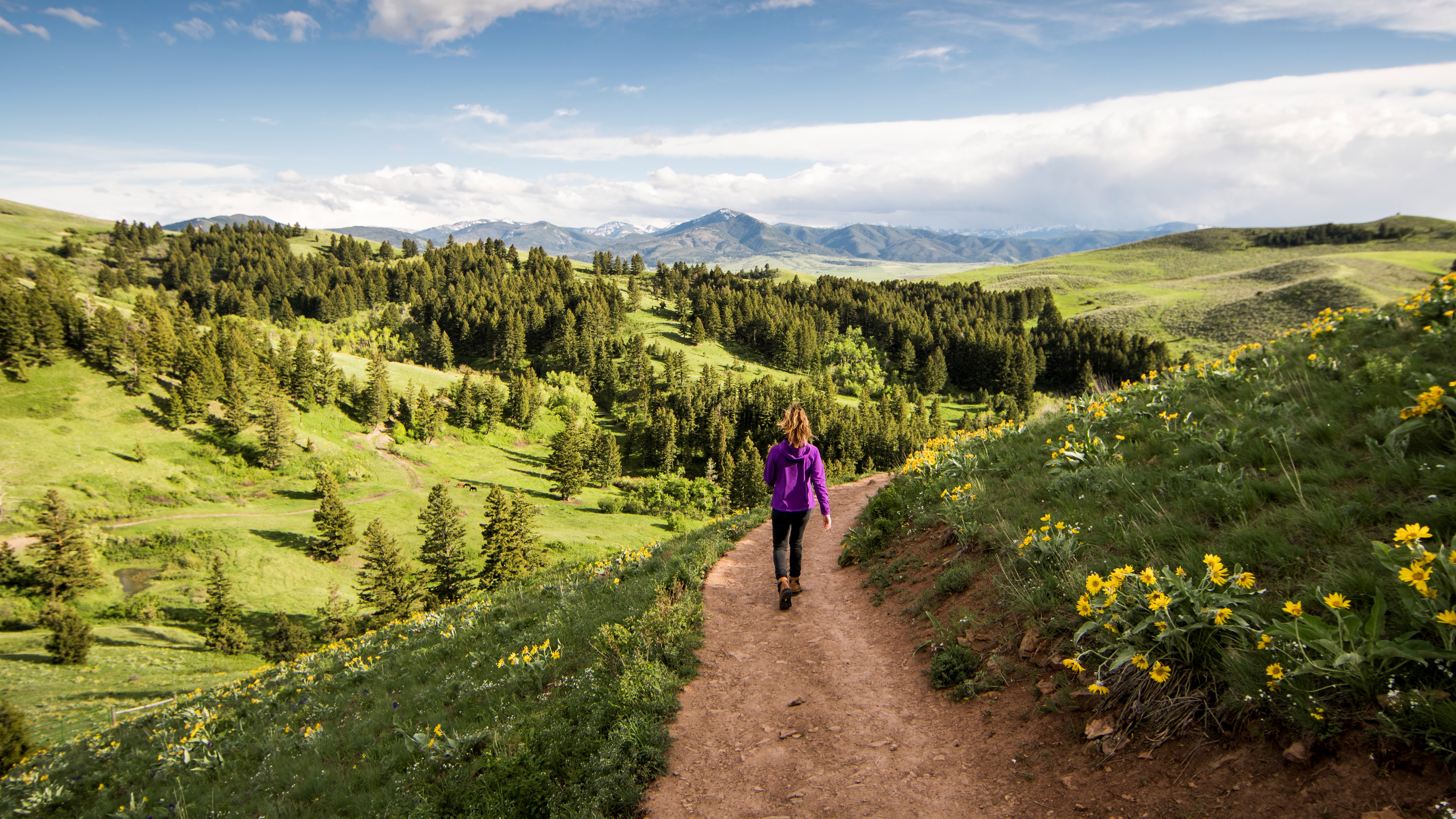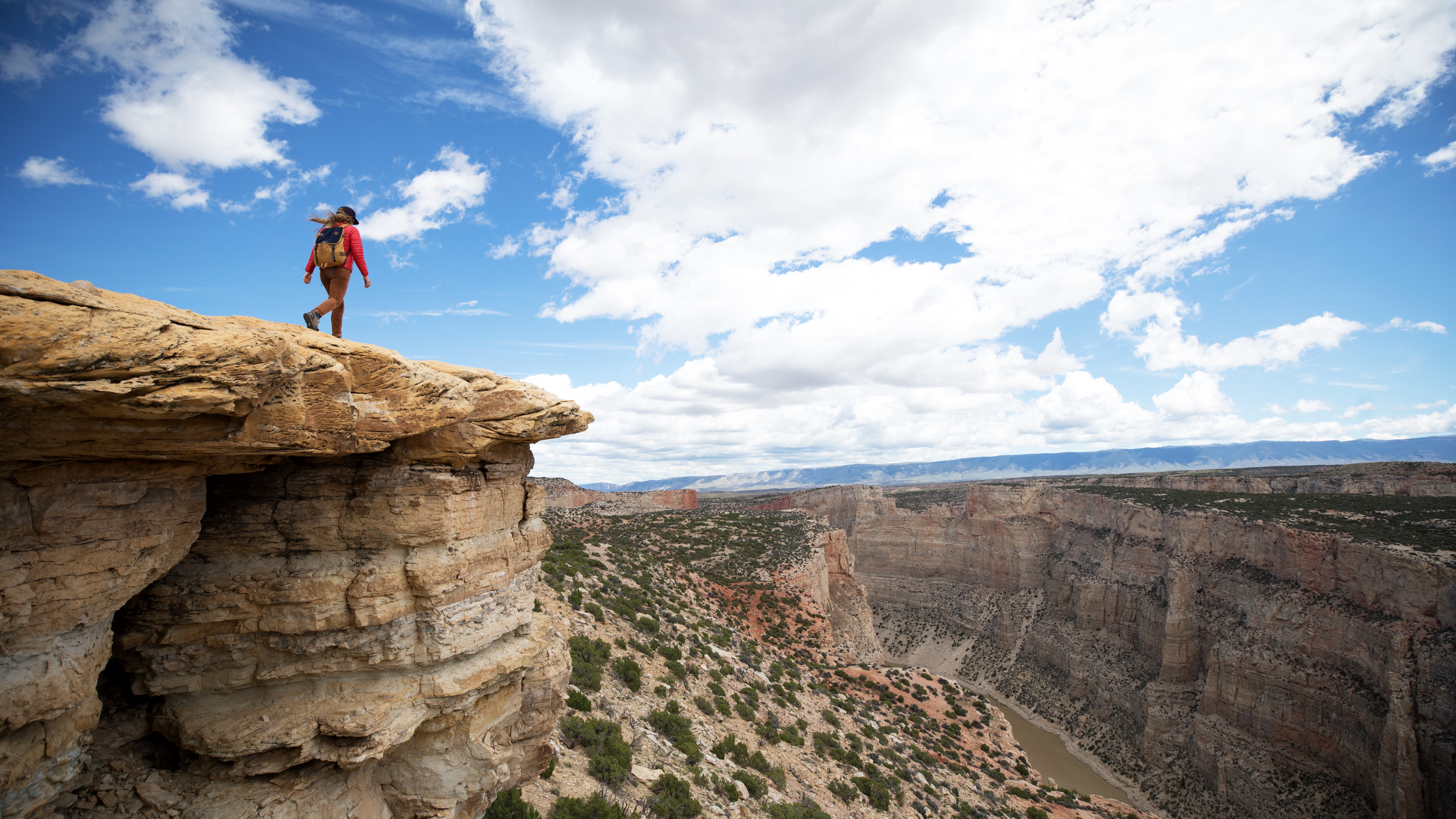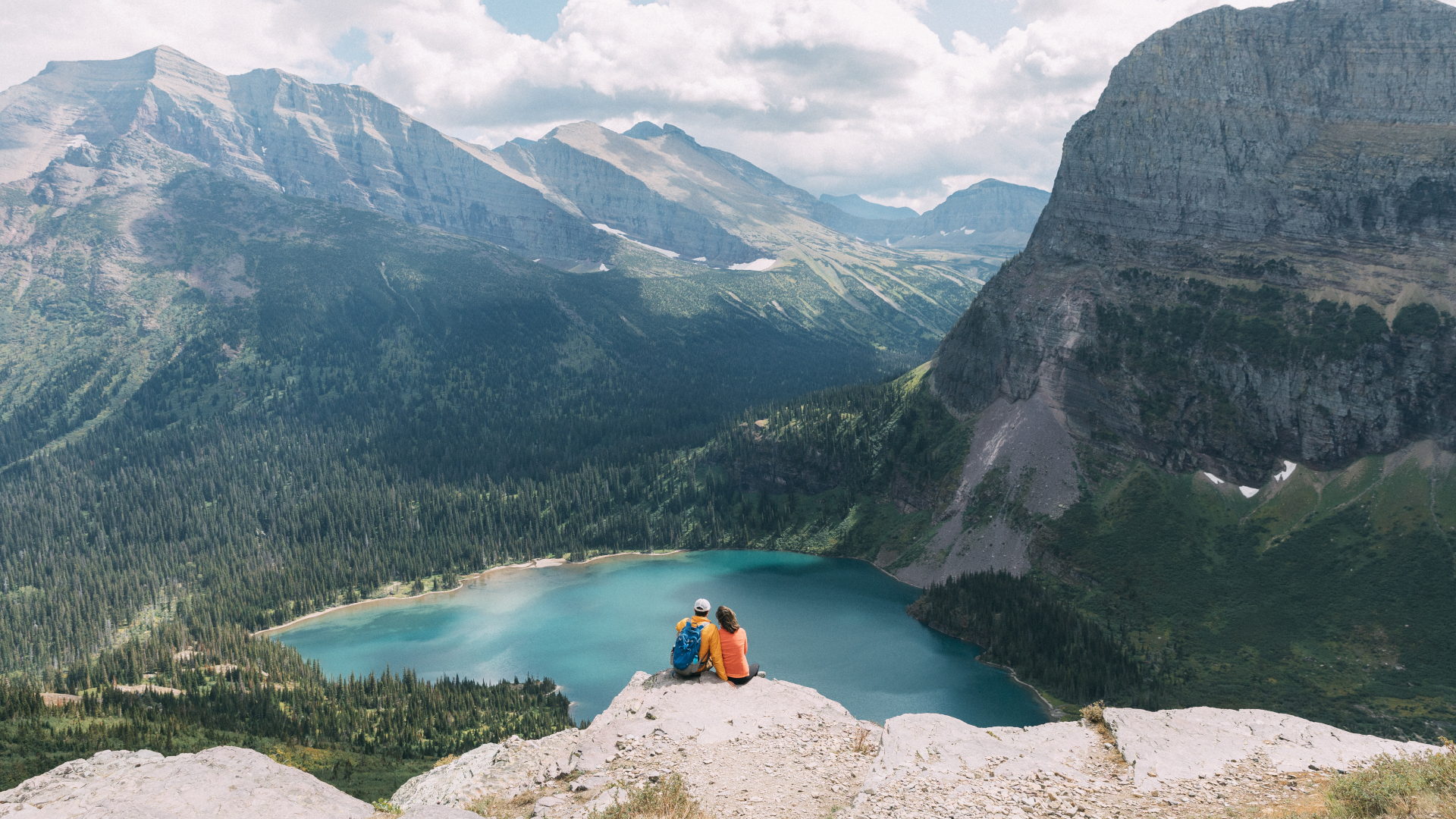
It’s a warm August day and I’m enjoying the shade of the conifer trees as I wind my way up the switchbacks on a trail in Flathead National Forest. After just over a mile in lush forest, I break out into Flathead Valley where it’s an easy walk now to Strawberry Lake, a small but pristine alpine lake with sandy shores.
I kick my hiking boots off, pull my water shoes on and wade in to cool off. A couple of hours later, I’m seated on a deck suspended over scenic Flathead Lake, sipping on a shake made with local cherries. I decide that Montana is my new favorite place for hiking, and wonder why it took me so long to visit.
It’s my first trip to Montana, though I’ve in Colorado for over a decade, and I’m not the first to discover that Montana is a hiker’s paradise. Most people who visit Big Sky Country flock here to see magnificent Glacier National Park or Yellowstone, which bleeds over a little into Montana, but the state is also home to 12 National Forests, 8.3 million acres of BLM land where you can go dispersed camping, a huge stretch of the Continental Divide Trail and almost 100 named mountain ranges or sub-ranges.
Whether you’re looking to join the hoards at Glacier or get lost in the backcountry, you’re sure to be delighted by the riches of the Treasure State, but there are a few things to know before you go.

1. There’s no one there
Personally, this is my favorite part of hiking in Montana. There’s nobody around. If you’re a Missoula resident hiking the M Trail, you might feel a little differently of course, but for me, coming from busy Colorado, I was astonished at the lack of other hikers here.
Montana is the fourth largest state in the US and it has just over one million residents. Colorado, where I was visiting from, is the eighth largest state and has a permanent population five times bigger. Here’s the real difference though – Montana sees about 12 million visitors each year compared to Colorado’s 84 million annual visitors. To get out on a hike alone in Colorado, you need to leave the trailhead at 7am on a Tuesday and even then, you’re bound to meet another human or two.
On this trail, which I’ve been informed is quite popular, I don’t get out until the early afternoon and I don’t see a single other hiker. So if you want solitude, head to Montana (but make sure you understand hiking safety and always tell someone where you are going).
2. Smoke gets in your eyes
Prior to heading to Flathead Lake for my nature fix, I’d spent two days in Missoula for a Pearl Jam concert. It was pretty smoky, thanks to wildfires burning in the state, but I noticed a strange thing – each time I mentioned the smoke to a local, say a server or taxi driver, they didn’t react.
Coming from Vail, wildfires are a big deal, but I soon discovered that in Montana, there’s actually 'fire season' and heavy smoke is a pretty common part of daily life here. It was so bad in Missoula that I had no idea the city was surrounded by five mountain ranges until I started driving north. Up in Flathead Lake, the situation was considerably better, but do prepare yourself for hiking in wildfire smoke while you are there and understand how gauge safety levels before you go.

3. Hiking trails may be shared use
I know I said I didn’t encounter any other hikers, but I did come across three dirt bikers on the trail. In Colorado, hiking trails tend to be designated for hikers only and aren’t usually open to motorized vehicles, so I was surprised to hear the whine of engines coming up the trail behind me. I jumped aside as they passed and I must say that getting a face of exhaust fumes wasn’t my favorite part of hiking in Montana.
Now, not all hiking trails allow motorized vehicles like dirt bikes and ATVs, but there are trails where they are permitted. Check what’s allowed on the trail before you set off and plan to hike or run without headphones, so you can be aware of who’s coming up behind you.
4. Be bear aware
Another reason you’ll want to keep your wits about you when you’re hiking in Montana is that the state has a lot of bears. Montana has between 13,000 and 17,000 black bears and about 800 grizzly bears that enjoy the high mountain, low human population here. Understand what to do if you meet a bear on a hike and carry bear spray on all trails.

5. Know how to navigate
Another thing I really love about Montana is how much wilder it feels compared to Colorado, which has a lot of remote wilderness. But where Colorado really excels at well-maintained and well-signposted trails, Montana’s trails can be a little more rustic. For that reason, I don’t recommend setting off without a compass and a map of the area (even these aren’t always the most accurate) so you can navigate even if you lose the trail.
6. High clearance helps
Whether you’ve moved to Montana and are getting a new set of wheels or you’re arranging a rental car for your trip, you’re going to want a vehicle with high clearance if you intend to do a lot of hiking. Even within the National Forests, a lot of trailheads can only be reached by pretty rough roads that require 4WD. Of course, you can always park and hike in, but know that you’ll be adding miles to each hike this way.

7. The season is short
Because Montana is home to some brutal winters, hiking season is pretty short, assuming you want to do it in hiking boots and not crampons. In many places, the trails don’t dry up until late July and it’s snowing again by mid October, so the season is even shorter than it is in places like Colorado, especially if you don’t want to deal with winter hiking.
That said, if you truly love hiking, you can explore here year-round, you’ll just need decent winter hiking boots, snowshoes or crampons to do so. If you're a little adventurous and dressed for winter hiking, you’ll soon discover that Montana is absolutely magical for hiking in winter too.







